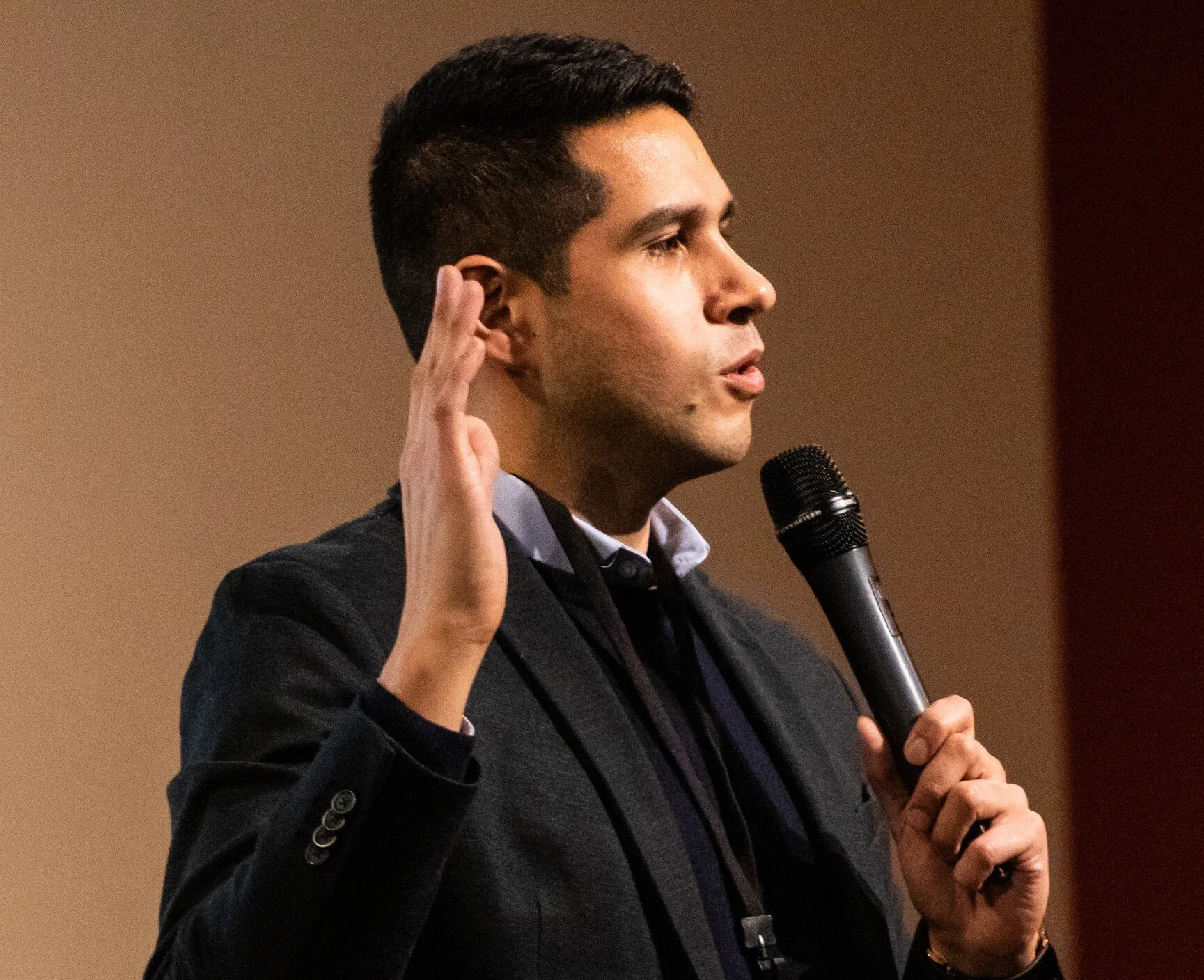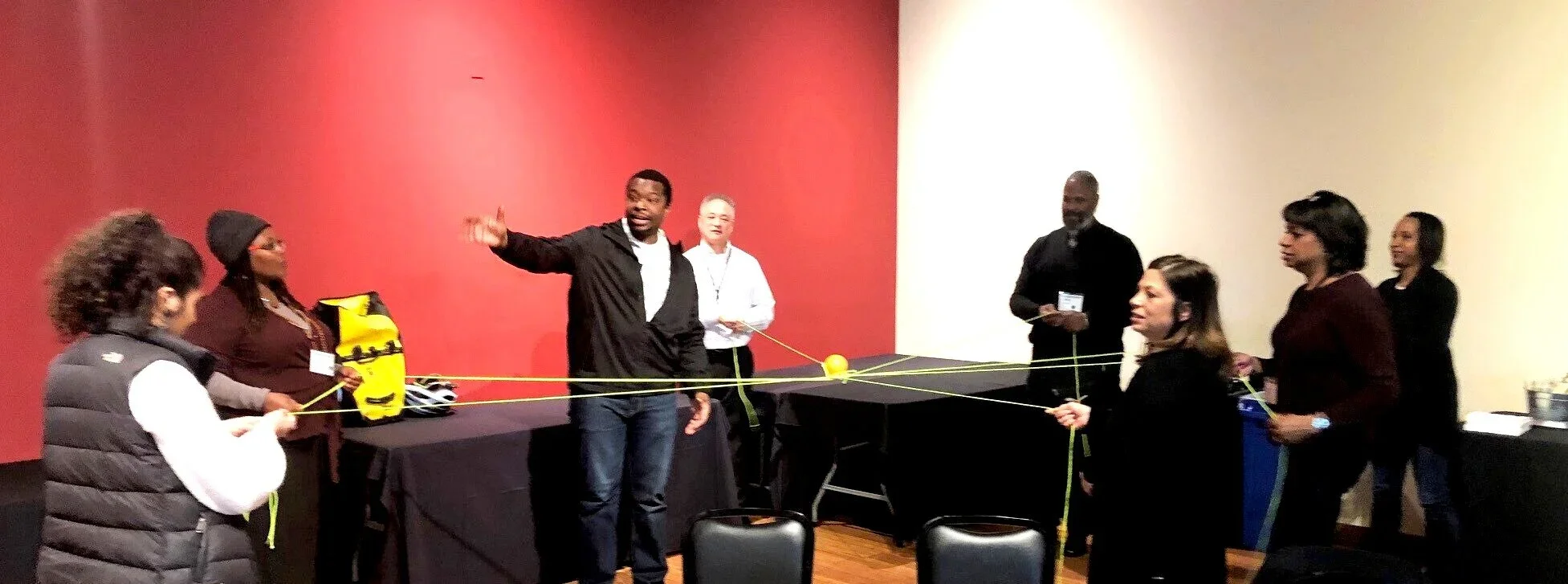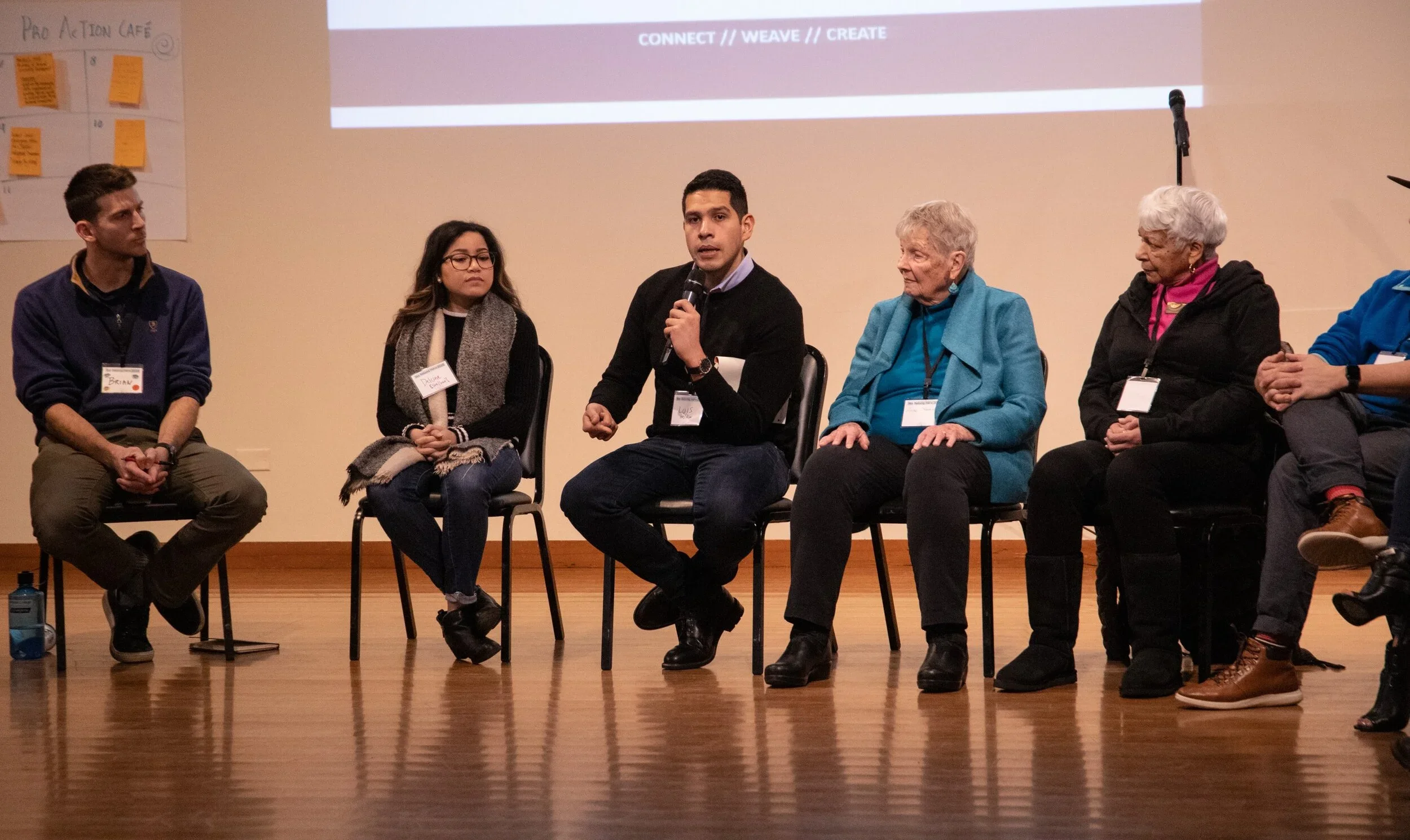“You are the agenda:” Perspectives from the first We Belong Here Gathering
When 65 people walked through the door of the Northwest African American Museum to take part in We Belong Here 2020, they received an unusual welcome. Facilitator Luis Ortega from Storytellers for Change told them to cast aside their idea of a typical conference with keynote speeches and single-issue panels. “Over the next two days, you are the agenda,” Luis told the group.
Luis Ortega, Storytellers for Change
We Belong Here is an unconventional experiment to grow a lasting social movement. Too often, we work with people in solely a transactional way, focusing on a single project or goal instead of building longer-term relationships. The We Belong Here 2020 gathering aimed to build personal relationships between people working for grassroots community groups, businesses, philanthropies and government so that when these leaders grapple with issues in the future, they will have the trust in place to build effective cross-sector coalitions.
“I’ve been to a few of these events before, but it’s framed as networking and has always felt a little surface-level. I like the more intimate relationships that this conference is working to form,” said Jordan Lyon, an editor from the Evergrey.
Slowing down and starting small
Sharing personal stories with strangers is never easy. When attendees were invited to turn to the person next to them and share a personal story, the room filled with awkward laughter.
But as the day progressed and people got to know each other better, the tone started to change. Attendees formed small groups that they would work with for a full day. By the time each group was asked to create and perform an eight-person secret handshake, participants joked with each other between intricate choreography. Throwing their hands into the air, each group showed how much easier it can be to create when people choose to trust each other.
As conversations grew more intimate, each group was asked to share about parts of their life where they felt like they belonged (or did not belong) in order to develop a joint “story of us.” Based on the social movement-building philosophy of Marshall Gantz, a “story of us” is a narrative that a group builds out of their shared lived experiences to present a vision that everyone can work towards.
“In my circle I felt a tremendous sense of gratitude for open-hearted sharing. I have not talked about these things with my own children. I can take these conversations and have them with my granddaughters. We are doing this for each other,” said philanthropist Anne Stadler.
Spoken word artist Ebo Barton also felt a rare sense of camaraderie being formed in their group. “I shared things I don’t normally share, and my whole job is sharing stories,” they said.
Not all small groups reached consensus. Issues of belonging and identity are challenging, and there is often friction between different worldviews. After his group had some contentious conversations, participant Anand Arkalgud reflected on the areas he needed to continue to learn and grow to be a better community collaborator. “Do not question each other’s intent,” he said. “Take the time to listen, make the time to listen, and listen until you hear no difference.”
Walking in silence
After hours of small group work, each participant was asked to write a thought or question on a piece of paper. Then, everyone walked the room in silence reading each other’s statements without comment. The sudden quiet was a powerful reminder that community is built from more than actions and words—it takes active listening and reflection to grow.
Making time for introspection spoke to Ventures Executive Director Beto Yarce. “I feel there is important and authentic work happening here,” he said.
The messy “story of now”
On the final day, facilitators planned a series of activities to help the group form a “story of now” – a narrative for action that could be carried into the future. But the group found that the trust needed to build that story required more time than the previous day and half of activities could create.
Many participants approached Luis to ask for time to discuss challenges they faced throughout the weekend. Some participants shared that the phrase “we belong here” rung false because they had never truly felt like they belonged in a country rife with racial and gender-based violence. Some wanted to discuss what part of their identity they would need to leave behind in order to belong. “Belonging is aspirational, not assumed,” said one attendee.
The group chose to throw out the agenda and talk together in a large circle. Participants shared about past attempts to connect in equity trainings that felt inauthentic. One woman spoke about an incident earlier in the day that had hurt her and how, as a woman of color, she felt repeatedly asked to carry the burden of raising the issue to a larger group. Another participant spoke about how the challenges of growing up as a refugee helped her find the strength to forgive others.
It turned out that the “story of now” that needed to be told was one that showed the difficulty of collaboration in a time of racial and economic inequity.
“I’m 88 years old and I have spent this whole time learning,” said Stadler.
Togetherness in a time of extreme othering
Even though emotions ran high, the group embraced each other after their difficult conversations. Led by elders in the group, each attendee walked around the circle sharing a hug or kind words for their fellow attendees. Participants thanked each other for their honesty and for the opportunity to share challenging opinions.
In 2020, it can often feel impossible to have nuanced conversations about race, class, gender and immigration because of the caustic nature of our national politics. But the people at We Belong Here showed that a greater drive for connection exists in our community by giving their time to each other.
Civic Common’s Frank Nam closed the gathering with a call for attendees to continue creating space for deeper connections. “It can be hard to set aside the time for each other. But we need that time to make these connections. Thank you for taking the time to plant these seeds and grow these relationships.”
Passages from the following works were read at the event:



